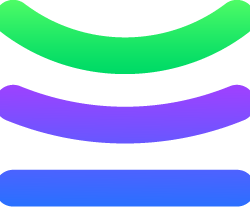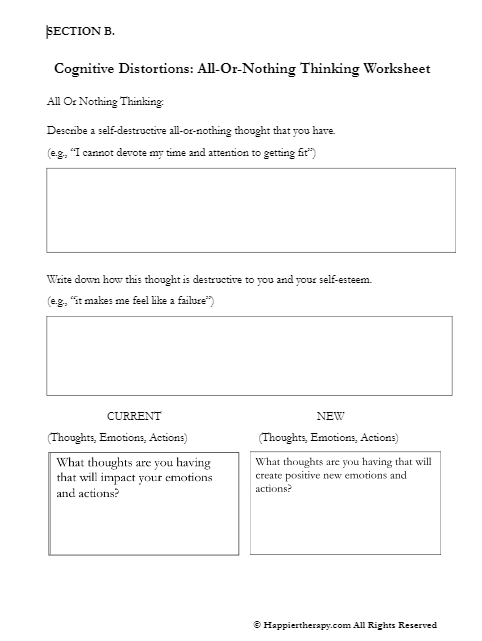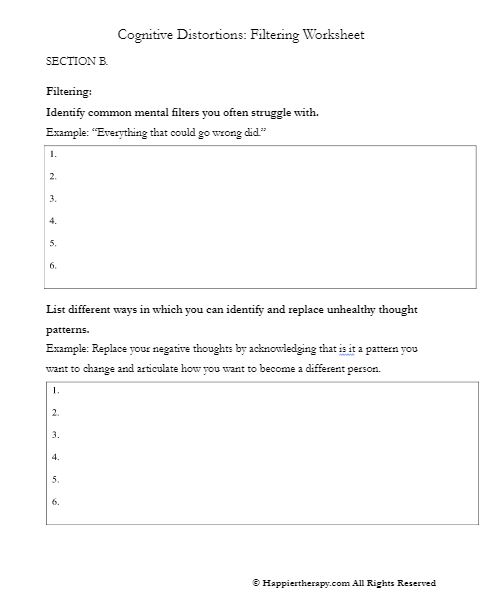Cognitive Distortions: Labeling Worksheet
Premium Content
Access this worksheet and 2,500 mental health worksheets. Cancel anytime
According to the American Psychological Association (APA), cognitive distortion can be defined as faulty or inaccurate thinking, perception, or belief. (APA, © 2022)
Enhance Your Therapy Sessions with research-backed worksheets
Customizable and fillable worksheets
Rights to alter the worksheets
Over 2000 worksheets
Support HappierTherapy
Often at times, cognitive distortions fuel our anxiety and increase our misery.
This particular worksheet will focus on; LABELING.
Labeling is one of the ten cognitive distortions that involves making harsh judgments about yourself, others, or different situations. It is also defined as
a distorted/ inaccurate way of thinking.
People battling with labeling often create a complex, derogatory, negative self-image based on taking a single attribute and turning it into an absolute.
Example: I failed my biology test. I am not good at school.
What Are The Theories Behind This Worksheet?
Cognitive behavioral therapy (CBT) is a problem-solving therapy aimed at helping individuals achieve their goals.
CBT is used to help individuals recognize their distorted thoughts and learn to question them.
In CBT, individuals are taught to break the cycle of negative thinking and replace it with a healthier, more balanced way of thinking.
Labeling has also been viewed as an extreme type of all-or-nothing thinking/ or overgeneralization. This is because one is attaching a label to someone or something offering no room for explanation and/ or redemption.
People who result in labeling are usually battling with anxiety and this can include depression, low self-esteem, low self-worth, and self-criticism.
How Will This Worksheet Help You?
This worksheet is targeted to help individuals break free from their distorted/ inaccurate ways of thinking of others, situations, relationships, and themselves.
This can be done by changing one’s negative/ or distorted thoughts and learning to objectively describe the behavior you notice.
How Should You Use This Worksheet?
Unhelpful thoughts can be challenged by restricting them.
Get some quiet time alone and identify negative/ distractive/ distorted thoughts and challenge yourself with a more balanced and objective view.
This worksheet can be used daily as a self-evaluation kit.
Was this helpful?
References
1.-
American Psychological Association. (© 2022). Cognitive Distortion. Available at:
https://dictionary.apa.org/cognitive-distortion. [Accessed October 05, 2022].
2.-
Cognitive Behavioral Therapy – Los Angeles. (© 2020). Cognitive Distortions: Labeling. Available at: https://cogbtherapy.com/cbt-blog/cognitive-distortions-labeling. [Accessed October 10, 2022].
 By
By

